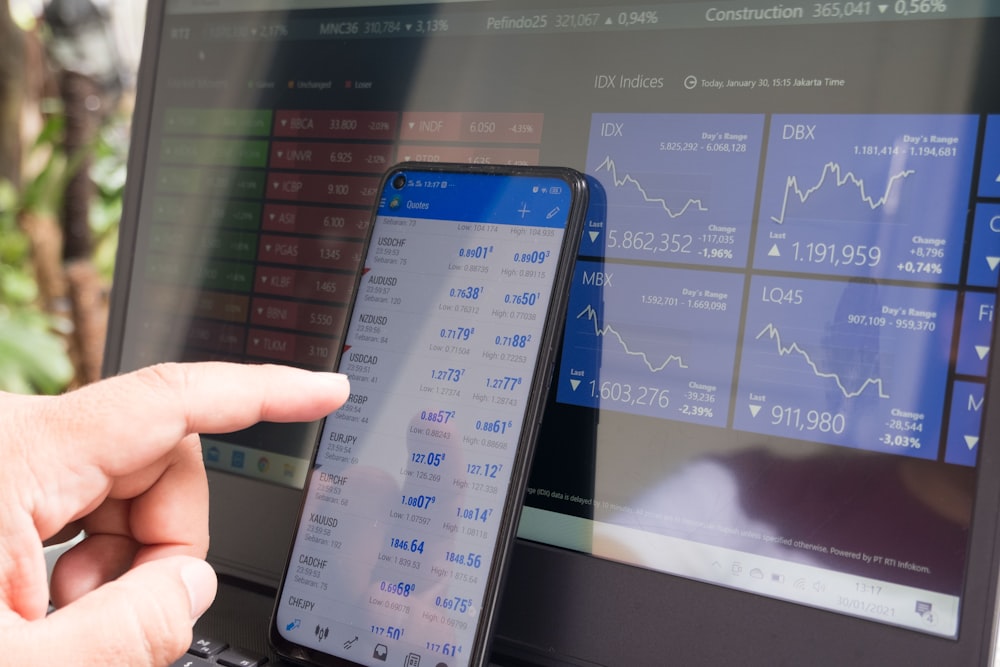US Stocks Plunge As Tech Shares, Including Nvidia And AMD, Decline Amid Economic Concerns
Image Source: Unsplash
- US stocks fell sharply on Tuesday, with the Dow down 480 points and Nasdaq dropping 1.8%.
- Semiconductor stocks, led by Nvidia's 6% drop, were among the biggest losers, affecting the tech sector.
- September is historically a weak month for stocks; investors are cautious ahead of the August jobs report.
US stocks faced a sharp decline on Tuesday, driven by underperforming technology shares and renewed concerns about the economy’s health.
The Dow Jones Industrial Average dropped by 480 points or 1.2%, the S&P 500 fell 1.3%, and the Nasdaq Composite saw a steeper decline of 1.8%.
This downturn was fueled by a combination of disappointing economic data and significant losses in semiconductor stocks, with market leader Nvidia (NVDA) experiencing a notable drop of around 6%.
Technology sector dragged down by Nvidia and AMD
The significant decline in US stocks was largely attributed to a slump in the technology sector, particularly semiconductor stocks.
Nvidia, a key player in the artificial intelligence (AI) space, led the downturn with a 6% drop, marking one of its most substantial declines in recent months.
This decrease has raised concerns about the sustainability of Nvidia’s impressive gains over the past year.
Other semiconductor stocks, including Micron (MU), KLA, and Advanced Micro Devices (AMD), also experienced declines, dragging the VanEck Semiconductor ETF (SMH) down by more than 4%.
The sell-off in tech stocks reflects worries that recent gains may have driven valuations beyond sustainable levels.
Economic data reveals weakness in manufacturing
Compounding the pressure on stocks were new economic reports indicating weaknesses in US manufacturing.
The S&P Global report highlighted a decline in manufacturing production from July to August.
Additionally, the Institute for Supply Management (ISM) released a reading that fell short of economists’ expectations.
These disappointing figures have reignited fears of a slowing US economy, with concerns that further rate hikes from the Federal Reserve could worsen economic conditions.
Analysts describe the current market as “data-dependent,” where investors react sharply to economic reports, underscoring anxieties about economic stability.
September has historically been the worst-performing month for the S&P 500, a trend that seems to be impacting investor sentiment this year.
Despite US markets being closed on Monday for Labor Day, the start of September has already been marked by renewed volatility.
Investors are now looking ahead to the August jobs report, scheduled for release on Friday.
This data is anticipated to influence market direction, especially amid ongoing recession fears.
Global developments contribute to market volatility
The recent US stock downturn is also influenced by global economic factors, including the unwinding of a popular hedge fund trade involving the Japanese yen.
This trend, combined with recession fears, led to a significant dip in stocks in early August, with the S&P 500 falling more than 7% before partially recovering towards the end of the month.
As September progresses, market participants are likely to remain cautious, closely monitoring global economic indicators and their potential impact on US markets.
As the market adjusts to new economic data and historical trends, investors are keenly watching whether tech stocks, particularly semiconductor names like Nvidia and AMD, can rebound from their recent losses.
A recovery in tech could provide the momentum needed to support a broader market recovery. However, with economic uncertainties still looming, the path ahead remains challenging for US stocks, particularly if upcoming data continues to fuel recession fears.
More By This Author:
JP Morgan Stock: Fortress Balance Sheet, One Way To Bet On The USAApple Stock Price Analysis: Can Its Valuation Be Justified?
Blackrock Vs Blackstone: Which Is A Better Stock To Buy?
Disclosure: Invezz is a place where people can find reliable, unbiased information about finance, trading, and investing – but we do not offer financial advice and users should always ...
more



